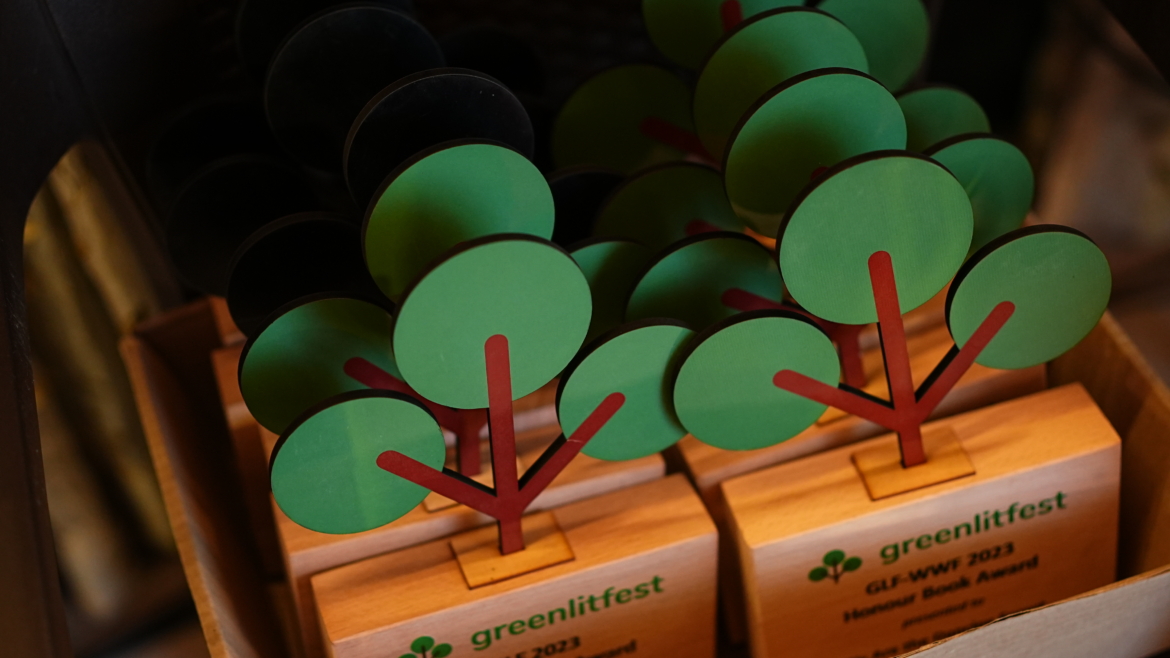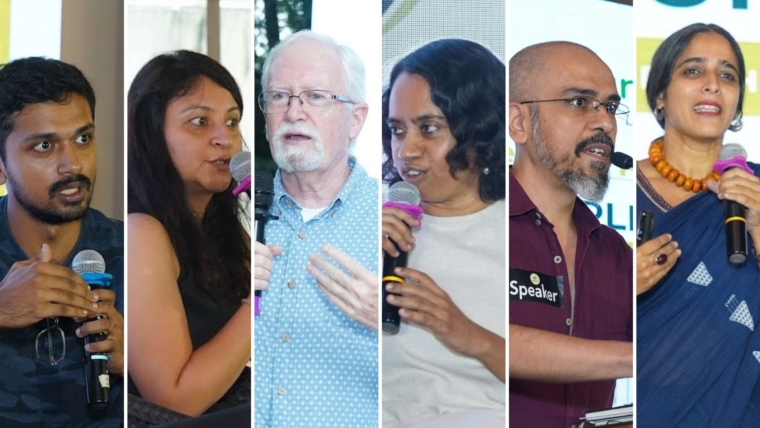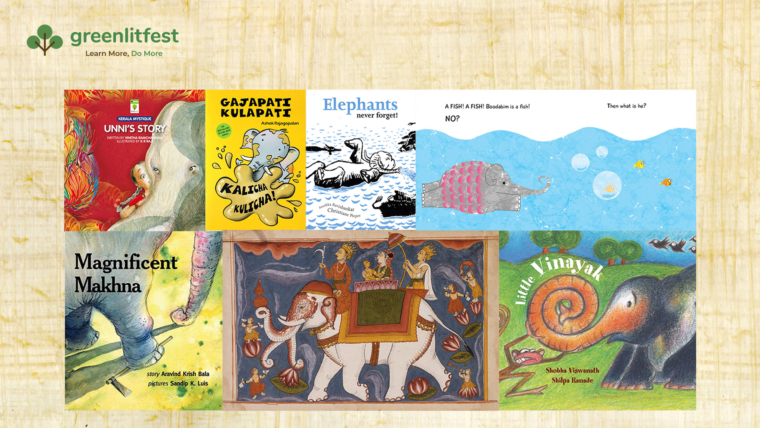by Monisha Raman
The Green Literature Festival Book Awards recognise the best of environmental writing in India across three categories: Business, General Fiction and Non-fiction, and Children’s literature. Each category has one Book of the Year and two honour titles.
Business
The jury comprising Gayatri Chauhan, Santhosh Jayaram and Ann Rochyne Thomas chose A Green Economy, India’s Sustainable Development by N.R. Krishnan as the Book of the Year. The book touches upon India’s socio-economic development strategy, environment versus development debate and offers key solutions for sustainable development in India. In their citation, the jury described the book as a veritable treasure of knowledge that shows how to live today for a common future in which no one is left behind.
The honour title, Anchoring Change: Seventy-Five Years of Grassroots Interventions that Made a Difference, edited by Vikram Singh Mehta, Neelima Khetan and Jayapadma RV, elaborates the journey and works of 24 successful social organisations in the 75 years of independent India. Meanwhile Urban Green Space, Health Economics and Air Pollution in Delhi by Swati Rajput, Kavita Arora and Rachna Mathur highlights the environmental threats to Delhi. While focusing on urban green spaces and their significance in Delhi, the narrative also touches upon risks of pollution, which may resonate with any developing nation.
General Fiction and Nonfiction
The jury of three prolific women, Sindhu Radhakrishna, Radhika Timbadia and Vinatha Vishwanathan chose Stephen Alter’s Birdwatching: A Novel as the Book of the Year. Set against the backdrop of the Sino-Indian war, they called this novel an unputdownable wartime spy thriller with threads of nature writing, romance and historical fiction woven together dexterously.
The honour title At the Feet of Living Things: Twenty-Five Years of Wildlife Research and Conservation in India, edited by Aparajita Datta, Rohan Arthur and T.R. Shankar Raman, is an anthology of sixteen essays revolving around the challenges conservationists face, the small victories that propel their journeys and the resilience of all creatures battling depleting ecosystems.
The other honour book, Superpowers on the Shore by Sejal Mehta, is an animated account of several beings, big and small, that inhabit the intertidal zone.
Children’s Literature
The young jury, Vedant Agarwal, Dhwani Nagendra Suri and Vihaan Srivastava, read the carefully-curated shortlist sent to them and chose Searching for the Songbird by Ravina Aggarwal as the Book of the Year. They called the book a great example of fiction where nature is far more than a mute backdrop andnoted how the taut narrative is… ideal for seasoned and new readers. The honour book Grandfather’s Tiger Tales by Anjana Basu is an anthology of three stories portraying the big cats with humour and empathy. Meanwhile, the honour book We are the Dancing Forest by Raj Shekhar, Devashish Makhija, Venkat Shyam and Nina Sabnani, a translation of the Hindi book Hum Jangal ke Jagar Magar, takes readers into the heart of an indigenous land with lyrical prose and arresting visuals.
Parting Note
During his award acceptance speech, Stephen Alter remarked that nature writing goes beyond non-fiction narratives. In today’s publishing climate, it is a genre that cannot be contained, a sublime force that is omnipresent, stirring relevant conversations. Through celebrating environmental writing, the Green Literature Festival Awards aim to garner more readers for it, thereby contributing significantly to literature’s destiny in the Anthropocene.
Watch the entire Award Ceremony here!
Monisha Raman’s essays and short stories have been published by various magazines in India and internationally. Her work was a part of the anthology Narratives in Domestic Violence published by the International Human Rights Arts Festival



